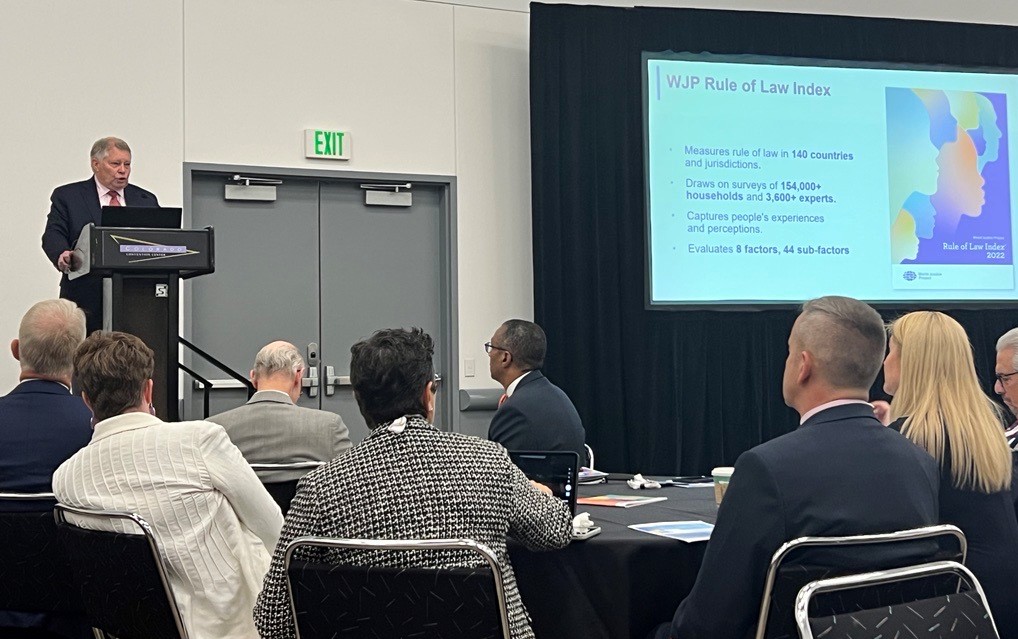

“Our moment of calling has come,” retired U.S. Judge J. Michael Luttig told the leaders of U.S. bar associations at their annual meeting in Denver during the first week of August.
In a passionate and well-received speech to the National Conference of Bar Presidents (NCBP), Luttig, an esteemed conservative jurist who served on the U.S. Court of Appeals for the Fourth Circuit for 15 years and testified before the January 6 Congressional Committee, warned that “American democracy and the rule of law are in peril.”
Among the concerns he cited were low public confidence in the Supreme Court, election denialism, the 2021 attack on the U.S. Capitol, and the upcoming trial of the nation’s former president for “grave offenses against the United States.”
“The most important effort ever undertaken by the legal profession”
Luttig issued a singular challenge to the audience of over 100 leaders of bar associations representing hundreds of thousands of attorneys across the country.
“You will lead the nation's lawyers in the most important effort ever undertaken by the legal profession,” Luttig said several days before the American Bar Association announced he would co-chair a new broad-based Task Force for American Democracy.
Lawyers are both “uniquely responsible and obligated” to stand up for the U.S. Constitution, democracy, and the rule of law, Luttig told the nation’s bar leaders.
Dozens of the legal leaders before him then participated in sessions designed to prepare them for that civic challenge, while also navigating the pitfalls of politicization that concern leaders of broad-based organizations.
Not political
World Justice Project (WJP) co-founder and board chair William Hubbard insisted that bar leaders can unassailably stand up for access to justice and judicial independence as essential elements of the rule of law.
“[T]hose are absolutely not political issues,” he said.
And yet, they are areas of great vulnerability.
Hubbard shared data from the WJP Rule of Law Index to underscore the urgency at hand. The U.S. now ranks 121 out of 140 countries on accessibility and affordability of civil justice, an area of longstanding weakness, while more recently, the strength of critical checks and balances have faltered.
The Index measure for “Constraints on Government Powers” has fallen 15% in the United States since 2016, Hubbard said.
New Toolkit
In a subsequent workshop led by incoming NCBP president Robin M. Wolpert, WJP Executive Director Elizabeth Andersen previewed the first module in a new U.S. Rule of Law Toolkit designed to equip lawyers to lead on the critical issues of the day.
She spoke of drawing inspiration from the legal leaders in the room and promised more tools to come. These will include communications resources, as well as guidance on compliance with Keller v. California State Bar Association, the Supreme Court decision that restricts political speech by mandatory bars.






